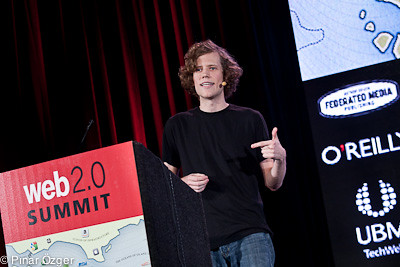 4chan‘s moot, aka Chris Poole, stood up at the Web 2.0 Summit yesterday and painted a more complex picture of identity:
4chan‘s moot, aka Chris Poole, stood up at the Web 2.0 Summit yesterday and painted a more complex picture of identity:
“The portrait of identity online is often painted in black and white,” Poole said. “Who you are online is who you are offline.” […] But human identity doesn’t work like that online or offline. We present ourselves differently in different contexts, and that’s key to our creativity and self-expression. “It’s not ‘who you share with,’ it’s ‘who you share as,’” Poole told us. “Identity is prismatic.”
I’m going to draw lines in the sand and call Chris an identity progressive, while Google and Facebook (officially, at least) are identity conservatives. The former supports an individual’s right to choose their identity – while the latter assumes that identity is imposed by a higher authority. (With Google allowing rich, famous people like Snoop Dogg to use their stage identities, while banning anyone else who tries to use an alternate name, it almost feels like a class issue.)
On this spectrum, Facebook’s contextual identity is extreme conservatism: not only is the description of who you (your name, location, place of work) mandated, but it’s also expected to include events throughout your entire life, largely unfiltered through the kinds of prisms that Chris spoke about. Twitter, on the other hand, is at the other end of the spectrum: you can be whomever you want to be, as long as you don’t infringe someone else’s rights by pretending to be them.
I bet this is being hotly discussed at the Internet Identity Workshop today. I wish I could be there, but look forward to reading reports from the floor.
Leave a Reply